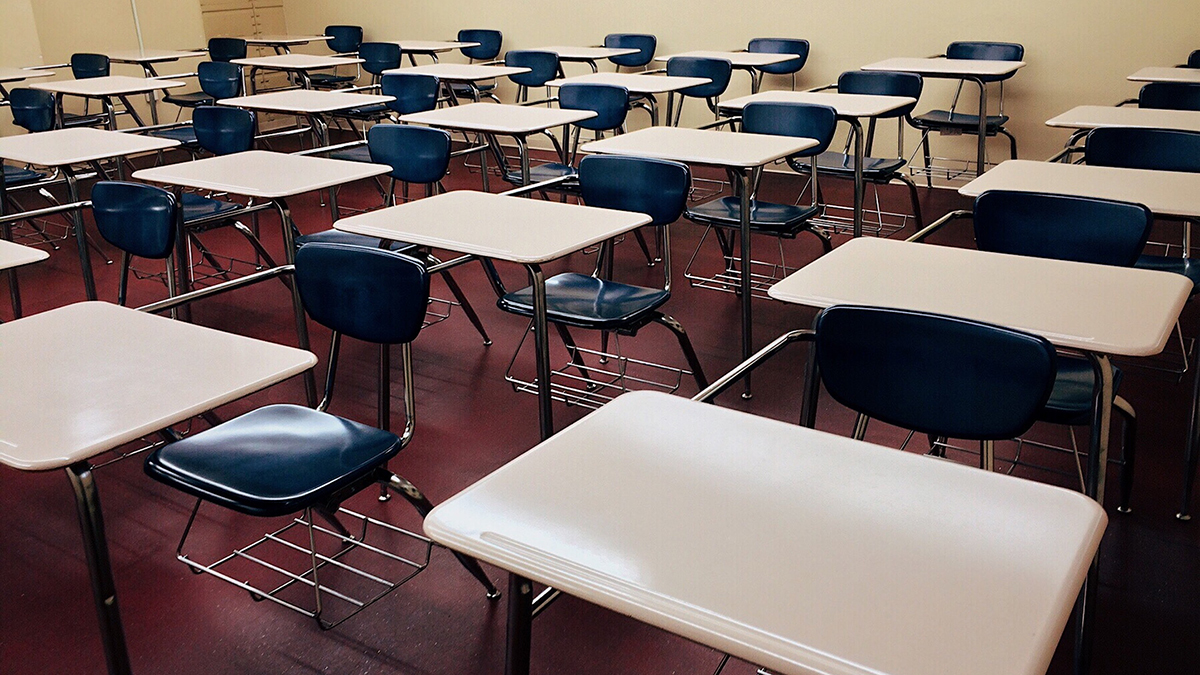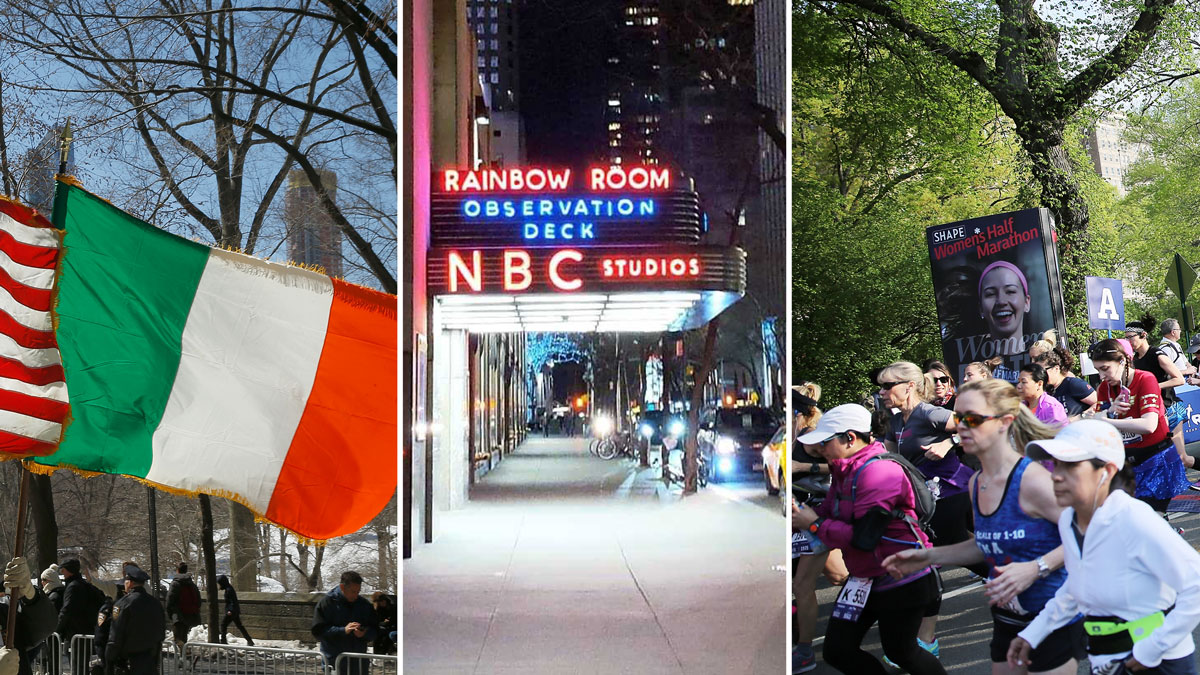What to Know
- U.S. novel coronavirus cases have surpassed 3,000; more than four dozen people have died, including two people in New Jersey and three people in New York
- The state of New York has more than 800 cases; most of the cases are in NYC and Westchester
- Governors in New York and New Jersey have declared states of emergency, and the usage of public transit is plunging
Schools in New York City will close Monday and may not open again until April 20.
After days of students and parents calling on the city to shut down schools to curb the spread of COVID-19, the mayor announced Sunday that schools will shut and remote learning for K-12 will begin one week later on Monday, March 23. For the upcoming week, schools will remain open for to provide students breakfast and lunch for kids in need while staff prepares for the following weeks of online schooling.
“By closing our schools now we may not have the opportunity to reopen them for the whole school year," de Blasio warned.
It is estimated that approximately 300,000 students in New York City need electronic devices to assist with remote learning. Schools Chancellor Richard Carranza said the city has found a partner in Apple to help "get devices into the hands of students that need them."
Tracking Coronavirus in Tri-State
The news comes as teachers and parents petitioned for the suspension of classes. The childcare for essential workers and meals for kids in need were the two biggest hurdles to the closure.
Schools in New York City join the growing list of schools closing their doors in regions with high volumes of COVID-19. Cuomo said schools in Westchester, Suffolk and Nassau will also be closed for the immediate future. The closures also begin Monday.
In addition to schools closing, an upcoming executive order by de Blasio would order all New York City hospitals to cancel elective surgeries, and shut down bars and restaurants.
Connecticut schools will also close this week. Gov. Ned Lamont ordered schools statewide to close on Tuesday, March 16, and hoped to reopen by March 31, although he warned that date could be pushed back.
"Students who receive meals through the school lunch/breakfast program will be able to continue receiving meals while classes are canceled," Gov. Lamont said.
Get full details on those closures and other school impacts across the tri-state here.
The closing of schools followed another dramatic rise in positive cases of COVID-19 as well as additional related deaths.
At least six people have now died from coronavirus-related deaths, Mayor de Blasio confirmed Sunday evening. That number includes the city's first death previously reported on Saturday. The five people had pre-existing health conditions, including diabetes and heart disease.
Earlier in the day, Gov. Andrew Cuomo said a 79-year-old woman who had "multiple major underlying health issues" before contracting the novel coronavirus has died in New York State, seemingly bringing the total death in the state to seven.
The 79-year-old woman died at a hospital in New York City on Sunday, New York State Commissioner of Health Howard Zucker said, without providing the hospital's name.
Over 850 tri-state residents have tested positive for the novel coronavirus as of Sunday.
Gov. Phil Murphy on Sunday afternoon, meanwhile, announced 31 new positive test results since Saturday, bringing the state total to 98, while saying an "extended shutdown" of the state's schools was "inevitable."
At the same news conference, Cuomo called on businesses to "aggressively consider" remote work and closings, saying the state could make closings mandatory if needed.
"I want private businesses to aggressively consider work from home and voluntary closings. Depending on what businesses do on a voluntary basis, we could consider mandatory actions later on," Cuomo said.
Cuomo noted that the state previously banned gatherings with 500 people or more, but said he would "get more aggressive on the mandatory regulations" if businesses didn't comply.
"I’m asking them today: Voluntarily close down. Voluntarily close down your bar, you restaurant, your gymnasium. Let’s see what they do," Cuomo said. "If nobody does it, then we can take more actions."
In a tweet, Cuomo said that "all non-essential" state employees in New York City, on Long Island and in Rockland and Westchester counties would be asked to stay home from work starting Monday.
Earlier in the day, Nassau County officials said the county would close all of its public and private schools for two weeks starting Monday, March 16 as the novel coronavirus continues to spread. On Sunday afternoon, meanwhile, Suffolk County officials said their schools would also close for two weeks.
"There is evidence that the virus is already present in any communities we serve, and our efforts now must be aimed at preventing its spread," Suffolk County Executive Steve Bellone said in a statement.
As of Saturday evening, Nassau County had 79 confirmed positive COVID-19 cases and Suffolk County had 41, according to the New York State Department of Health.
Nassau County Executive Laura Curran said students who receive meals at their schools will continue to receive them under a "grab and go" program.
Bellone said administrators and teachers would "still have access to school buildings for local district planning, distance-based education purposes, temporary grab-and-go meal programs and childcare issues."
As of Sunday morning, nineteen states had shut down all K-12 schools in response to the growing outbreak.
Positive cases of COVID-19 seemed to come back in all corners of the tri-state Saturday, in everyone from USPS employees to New York Assembly officials.
City and state governments initiated varying tactics to curb the growing spread of COVID-19. At the start of the weekend, New York, New Jersey and Connecticut were reporting a little more than 400 cases. By Saturday, officials reported four coronavirus-related deaths and more than 800 positive cases of the virus.
The upcoming election for the Queens Borough President was postponed Sunday, de Blasio said. Acting Borough President Sharon Lee called the decision "extraordinary, but warranted given urgency and magnitude of the situation."
New York City Council staff were told Saturday not to work in council offices starting Monday as staff is transitioned into a work-from-home setup.
As more New York City employers make decisions around office work policies, public schools remain open for students and faculty.
Amid a dramatic rise in cases across New York, two state lawmakers tested positive for the virus, Gov. Cuomo confirmed late Saturday.
"It has come to our attention that two of our Assembly colleagues — Helene Weinstein and Charles Barron — have been diagnosed with COVID-19," the governor said. He also noted that neither had been to the Capitol since early March, but out of an abundance of caution it would be closed to visitors on Sunday.
After dealing with seemingly nothing but bad news for the past couple of days — including even more COVID-19 cases, New York State and New York City declaring states of emergency, Broadway going dark, the sports world entirely put on hold, and a national emergency being declared — there was a bit of good news Friday.
Coronavirus Impacts
How to Protect Yourself
New York City's Health Department released the following guidance for people who recently traveled to China, Iran, Italy, Japan or South Korea -- or for anyone who experiences fever, cough or shortness of breath:
- Stay home — do not travel or go to work or school while sick
- Go to a health care provider and tell them about your travel history
- If you do not have a health care provider or insurance, call 311
- Avoid contact with others
- Wash hands often with soap and water for at least 20 seconds. Use an alcohol-based hand sanitizer if soap and water are not available
- Avoid touching your face with unwashed hands





